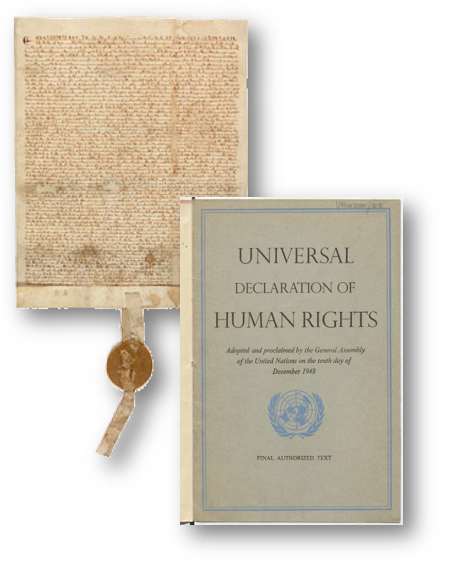It all began in a field. It seems strange to say that modern democracy was born in a simple meadow somewhere between Windsor and Staines. Back on June 15, 1215, in a meadow at Runnymeade, King John of England and a group of rebellious barons that had been threatening civil war signed a peace treaty. Little did they know at the time the lasting effect that this treaty, known later as the Great Charter or Magna Carta, would have not only at the time but hundreds of years later across a wide span of ocean in a land just finding its way. The Magna Carta, with its espousal of principles of liberty, inspired America’s Founding Fathers to include those rights in the United States Constitution and specifically the Bill of Rights. One of the central tenets of the Magna Carta, the protection from loss of life, liberty, or property without due process of law , provided the central theme for the declaration of individual rights set out in the Bill Rights. Other important rights and liberties stemming from this historic document are the right to trial by jury, the right to a speedy trial, freedom from cruel and unusual punishment, freedom from excessive fines or bail, and freedom from compulsory self-incrimination. The foundation for the notion of habeas corpus can also be found in the Magna Carta.
To learn more about Magna Carta and to see copies of one of the most important legal documents in history, check out these digital exhibits and resources:
Harris County Law Library’s Magna Carta: A Digital Exhibit
Library of Congress’s Magna Carta: Muse and Mentor
National Archives: Magna Carta
British Library: Magna Carta






